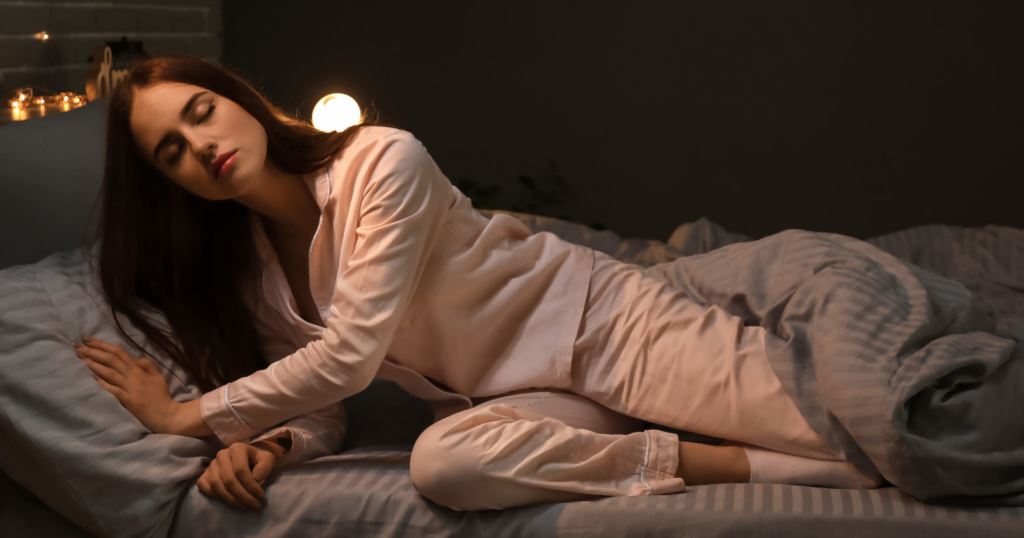There’s something intriguing about people who lock their bedroom doors at night. While it may seem like a simple act of privacy or security, psychology suggests it could reveal more about a person’s personality traits.
Locking the bedroom door at night isn’t just a casual habit. It’s a decision that could hint at various unique traits and behaviors. Psychologists have identified six distinct characteristics commonly found in these individuals.
This doesn’t mean every door-locker is the same, of course. But if you’re someone who twists that lock before hitting the hay, or know someone who does, these traits might sound familiar.
Trust me, it’s more fascinating than you’d think!
1) Desiring security
One of the most common traits associated with people who lock their bedroom doors at night is a heightened sense of security. It’s not just about physical safety, but also about psychological comfort.
This nightly ritual can provide a sense of control and order in an unpredictable world. It’s a barrier, a line drawn that separates the sanctity of sleep from potential disruptions or intrusions.
Psychologist Abraham Maslow highlighted this need for security in his famous hierarchy of needs. According to Maslow, safety needs like security and order come right after basic physiological needs like food and water.
As Maslow once said, “A person who is lacking food, safety, love, and esteem would most probably hunger for food more strongly than anything else.”
In the context of our locked bedroom doors, it may not be about hunger for food, but rather a hunger for security and peace of mind.
Locking the door is a way to satisfy this hunger, to fulfill this inherent need for safety. So if you’re one to turn that key or bolt that latch each night, it likely means you value your security highly – both in your sleep and in life.
2) Valuing solitude
Another trait that’s often seen in people who lock their bedroom doors at night is a deep appreciation for solitude. As someone who locks my own door each night, I can attest to this.
For me, it’s not about fear or security, but rather about creating a personal sanctuary, a space that is solely my own.
It’s about setting boundaries and cherishing that alone time, where I can reflect, dream and simply be by myself.
The renowned psychologist Carl Jung once said, “Solitude is for me a fount of healing which makes my life worth living.”
This resonates deeply with me and perhaps with other door-lockers too.
Locking the door is like locking in my solitude – reinforcing the boundary between me and the outside world. It’s a small act that signifies a larger desire for personal space and quiet reflection.
If you’re like me, locking your bedroom door each night, it might just be your way of honoring your need for solitude.
3) Exhibiting introversion

Ever wonder if your bedroom door-locking habit could be tied to your personality type? It’s a compelling thought, especially when considering the trait of introversion.
Being an introvert isn’t about being shy or antisocial. It’s about how you recharge and where you draw your energy from.
And for many introverts, locking that bedroom door at night is more than a security measure – it’s a way to create a quiet, personal space for recharging.
Carl Jung, who brought the terms introvert and extrovert into mainstream psychology, had this to say about introverts:
“Everyone carries a shadow, and the less it is embodied in the individual’s conscious life, the blacker and denser it is.”
To me, this quote speaks volumes about the importance of introspection and self-awareness. As an introvert myself, I often find that locking my bedroom door at night provides me with that crucial me time for self-reflection.
If you’re a fellow bedroom door locker, it could be an indication of your introverted nature. It’s not something to shy away from, but rather, something to embrace.
After all, our habits – even as simple as turning a key – can tell us more about ourselves than we might realize.
4) Practicing self-care
Locking your bedroom door at night might seem like a simple, mundane action, but it can actually be a form of self-care.
You’re creating a safe and secure environment where you can relax and rejuvenate, undisturbed by external factors.
A study found that self-care practices, including creating a comfortable and secure sleep environment, can significantly reduce stress and improve mental health.
This study suggests that self-care is not just about spa days or meditation sessions, it’s also about small actions that contribute to your overall sense of well-being and comfort.
So, locking your bedroom door at night can be seen as a deliberate step towards nurturing your mental health.
If you’re one of those individuals who always locks their bedroom door before sleeping, it’s likely that you’re not just seeking security or solitude – you’re actually practicing a form of self-care.
And in today’s fast-paced world, taking care of oneself is more important than ever.
5) Displaying independence
A less obvious trait that people who lock their bedroom doors at night may exhibit is a strong sense of independence. I’ve noticed this in my own behavior and I’ve seen it in others as well.
By locking the door, you’re setting a clear boundary between yourself and others. It’s a way of affirming your autonomy – your right to have your own space and to control who enters it.
Famed psychologist Albert Bandura once said, “In order to succeed, people need a sense of self-efficacy, to struggle together with resilience to meet the inevitable obstacles and inequities of life.”
This independence, this self-efficacy, can be seen in the act of locking one’s bedroom door.
If you’re a door-locker like me, it’s likely you value your independence. You see your space as your own, and you’re not afraid to enforce that boundary.
It’s not about being distant or detached, but about honoring your individuality – a trait that should be celebrated and respected.
6) Seeking freedom
Now, this might seem counterintuitive, but people who lock their bedroom doors at night might actually be seeking freedom.
It’s not about confinement, but rather about creating a space where they can be entirely themselves without judgment or interruption.
By locking the door, you’re choosing to create a space that allows you to be free in your thoughts, actions, and feelings. It’s a small act of self-assertion that says, “This is my space. Here, I am free.”
If you find yourself turning that key or sliding that bolt every night before bed, consider this: it may not be about safety or solitude at all. It could be your unique way of expressing and experiencing freedom.
Wrapping up
The beautiful complexity of human behavior is that it often goes far beyond what meets the eye.
Something as simple as the act of locking your bedroom door before sleep could be a window into your personality, your desires, and your needs.
For some, it might be a quest for security, a manifestation of self-care, or an assertion of independence. For others, it might be a celebration of solitude, a pursuit of personal freedom, or a measure of control.
As you turn that key or slide that bolt tonight, take a moment to reflect. What does this small act say about you? And how does it shape the way you perceive and interact with the world?
Remember, there’s no right or wrong answer here – just insights waiting to be discovered. The door to understanding ourselves better might just be through the very doors we lock each night.







